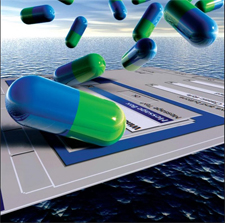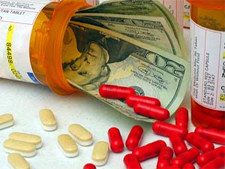|
This
in-depth pharmaceutical market report is ideal for executives
wanting to understand the key drivers in pharmaceutical markets
and have access to a wealth of statistical data. Each report opens
with an outlook section that provides analysis of the market,
5-year market forecasts, national data projections, market outlook
and key developments such as regulation, pricing/reimbursement,
intellectual property, health facilities and government policy.
The report also provides extensive background information,
population trends, health status, health expenditure, organisation
& administration, hospital services, medical personnel, healthcare
development, market access information, trade data for raw
materials and finished products and essential industry contacts.
Included with the report are 3 free quarterly updated outlook
reports, enabling you to keep up to date with market developments
for a year.
Executive Summary
Bangladesh is one of the ten most populous countries in the world.
It is also one of the poorest. Access to even the most basic of
healthcare provision remains sub-standard, despite the ongoing
efforts of the government, aided by considerable international
assistance. Adequate secondary or tertiary care is beyond the
reach of all but a very few people. Government hospitals are often
little more than clinics, and suffer from severe shortages of
trained staff. There is a growing private hospital sector, largely
based in Dhaka, which caters for the well-off. It is in the
private sector where the most advanced services are located, and
where almost all pharmaceutical demand is found.
Given the country's lack of spending power, the pharmaceutical
market, at US$682 million, remains tiny in comparison with the
size of the population. Pharmaceutical spending is amongst the
lowest in the world in per capita terms. Steadily improving
economic performance, combined with a general determination to
boost the quality of healthcare, should lead to modest, if
unspectacular, market growth. An increase in investment in
Bangladesh by multinational pharmaceutical manufacturers is also
anticipated to stimulate the sector. The revised National Drug
Policy was introduced in 2005 with the hope of attracting foreign
multinational investment and revitalising the health sector in the
long term. In addition the emergence of Beximco, the leading
domestic manufacturer, offers encouraging signs for the future,
although the company did experience a marginal decline in turnover
in 2007. The market is dominated by cheap, locally produced
generic drugs used for the treatment or prevention of basic
illnesses and conditions.
|




